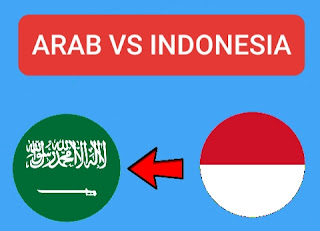Indonesia Language; Alphabet and Pronunciation
By: Fauji Imamul Arifin
I. Basic Indonesia Language
Letters in Indonesia language are divided into two groups:
• Vowel:
The vowel letters in Indonesia language are Aa, Ii, Uu, Ee, and Oo.
• Consonant
The consonant letters in Indonesia language are Bb, Cc, Dd, Ff, Gg, Hh, Jj, Kk, Ll, Mm, Nn, Pp, Qq, Rr, Ss, Tt, Vv, Ww, Xx, Yyand Zz.
II. Alphabet and Pronunciation
Aa → it is pronunced a like in Father
Bb → it is pronunced b like in Big
Cc → it is pronunced c like in Car
Dd → it is pronunced d like in Dog
Ee → it is pronunced e like in Festival
Ff → it is pronunced f like in Fall
Gg → it is pronunced g like in Goal
Hh → it is pronunced h like in Hall
Ii → it is pronunced i like in Islam
Jj → it is pronunced j like in Japan
Kk → it is pronunced k like in Kill
Ll → it is pronunced l like in Low
Mm → it is pronunced m like in Mall
Nn → it is pronunced n like in Not
Oo → it is pronunced o like in Fog
Pp → it is pronunced p like in Pull
Qq → it is pronunced k like in King
Rr → it is pronunced r like in Rich
Ss → it is pronunced s like in Sell
Tt → it is pronunced t like in Think
Uu → it is pronunced oo like in Foot
Vv → it is pronunced v like in Volt
Ww → it is pronunced w like in Wall
Xx → it is pronunced x like in Wax
Yy → it is pronunced y like in Youth
Zz → it is pronunced z like in Zoo
III. Diftong letters
There are diphthongs symbolized by ai, au, and oi.
Ai → it is pronunced ai like in Sail
Au → it is pronunced ou like in Mouth
Oi → it is pronunced oi like in Soil
IV. Combined Consonant Letters
Consonant font letters kh, ng, ny, and sy, each represent a consonant sound.
Kh → it is pronunced as kh like in
Khan
Ng → it is pronunced as ng like in Long
Ny → it is pronunced as ni like in Onion
Thanks for reading. I hope it is useful for you.
By: Fauji Imamul Arifin
I. Basic Indonesia Language
Letters in Indonesia language are divided into two groups:
• Vowel:
The vowel letters in Indonesia language are Aa, Ii, Uu, Ee, and Oo.
• Consonant
The consonant letters in Indonesia language are Bb, Cc, Dd, Ff, Gg, Hh, Jj, Kk, Ll, Mm, Nn, Pp, Qq, Rr, Ss, Tt, Vv, Ww, Xx, Yyand Zz.
II. Alphabet and Pronunciation
Aa → it is pronunced a like in Father
Bb → it is pronunced b like in Big
Cc → it is pronunced c like in Car
Dd → it is pronunced d like in Dog
Ee → it is pronunced e like in Festival
Ff → it is pronunced f like in Fall
Gg → it is pronunced g like in Goal
Hh → it is pronunced h like in Hall
Ii → it is pronunced i like in Islam
Jj → it is pronunced j like in Japan
Kk → it is pronunced k like in Kill
Ll → it is pronunced l like in Low
Mm → it is pronunced m like in Mall
Nn → it is pronunced n like in Not
Oo → it is pronunced o like in Fog
Pp → it is pronunced p like in Pull
Qq → it is pronunced k like in King
Rr → it is pronunced r like in Rich
Ss → it is pronunced s like in Sell
Tt → it is pronunced t like in Think
Uu → it is pronunced oo like in Foot
Vv → it is pronunced v like in Volt
Ww → it is pronunced w like in Wall
Xx → it is pronunced x like in Wax
Yy → it is pronunced y like in Youth
Zz → it is pronunced z like in Zoo
III. Diftong letters
There are diphthongs symbolized by ai, au, and oi.
Ai → it is pronunced ai like in Sail
Au → it is pronunced ou like in Mouth
Oi → it is pronunced oi like in Soil
IV. Combined Consonant Letters
Consonant font letters kh, ng, ny, and sy, each represent a consonant sound.
Kh → it is pronunced as kh like in
Khan
Ng → it is pronunced as ng like in Long
Ny → it is pronunced as ni like in Onion
Thanks for reading. I hope it is useful for you.

